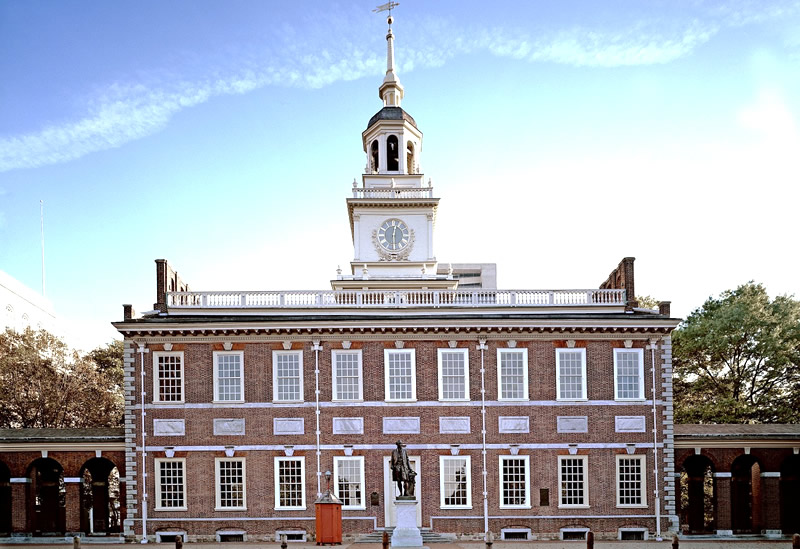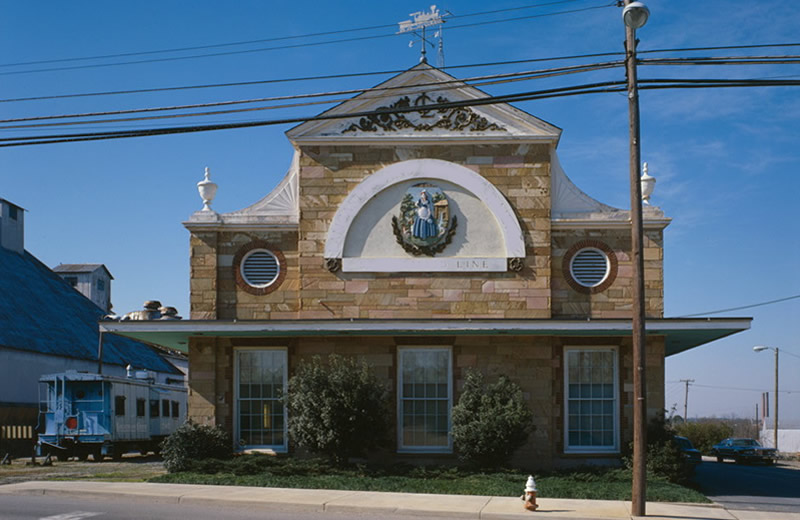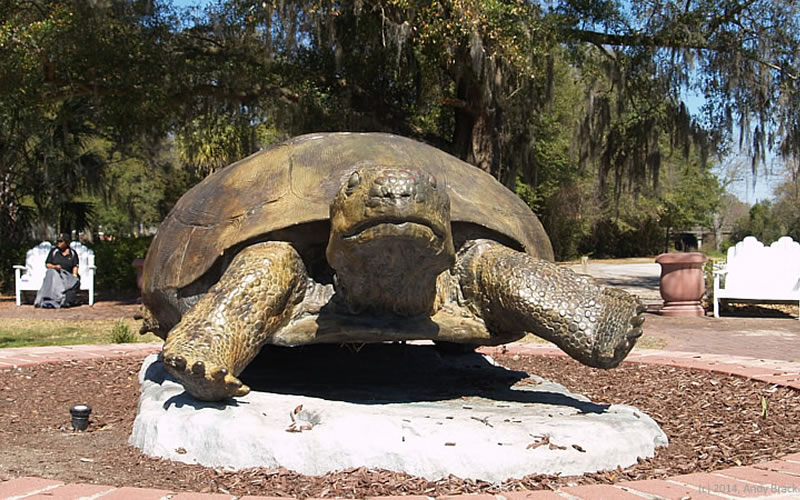 NEWS: House, Senate differ on path to sell Santee Cooper
NEWS: House, Senate differ on path to sell Santee Cooper
BRIEFS: Speaker worries about education reform; More on DSS, solar, tax reform
TALLY SHEET: Few substantive bills introduced as session heads toward May close
COMMENTARY, Brack: More civics education needed in state’s colleges
SPOTLIGHT: Charter Communications
FEEDBACK: On incrementalism and politics
MYSTERY PHOTO: Grand, beautiful building
S.C. ENCYCLOPEDIA: Jasper County
House, Senate differ on path to sell Santee Cooper

By Lindsay Street, Statehouse correspondent | There’s a sudden, fervent push to sell one of the nation’s few remaining public utilities that has roots in the early 20th century’s push to bring electricity to rural parts of South Carolina.
But exactly how the sale of state-owned Santee Cooper would happen is still up for debate in Columbia.
 Though the utility has survived previous efforts seeking to privatize the sprawling entity that does everything from electricity generation to managing mosquitoes near two public lakes, this push has support from the governor and key lawmakers.
Though the utility has survived previous efforts seeking to privatize the sprawling entity that does everything from electricity generation to managing mosquitoes near two public lakes, this push has support from the governor and key lawmakers.
The recent effort stems from Santee Cooper’s minority ownership role in a nuclear expansion project in Fairfield County that incurred more than $9 billion in debt before shuttering. Santee Cooper first pulled out of the deal, followed by for-profit SCANA, which became takeover candy for Virginia’s Dominion Energy. Since the nuclear debacle, state lawmakers have claimed Santee Cooper was mismanaged. Executives for the utility added fuel to the fire this week amid reports of hundreds of thousands of dollars of bonuses to executives. Those who oppose selling Santee Cooper say the utility is cleaning up its act. But it could all be too late.
In the House and Senate, resolutions are making their way to the floors that pave the way for its sale. The General Assembly must authorize a sale by law. Both resolutions give the final authorization to the General Assembly, but they differ in who evaluates bids. The House version seeks to have bids evaluated by a nine-member joint commission, while the Senate version seeks to have bids evaluated by the Department of Administration.

“Both bodies are saying, ‘Sell Santee Cooper,’” Charleston Republican Sen. Paul Campbell said Thursday. Campbell serves on the Senate Finance Committee, which weighed and gave a favorable report to a resolution this week.
Either resolution could get floor approval as next week, and then would need approval from the other body and the governor. But even with moving quickly on a resolution, the eventual sale or restructuring of the utility would take months.
“We still have a long way to go before the final offers are to us,” House Ways and Means Chair Murrell Smith, R-Sumter, said Tuesday.
That means any sale would need to get General Assembly approval in a special session while it is in recess, something that can be accomplished via a two-thirds majority, end-of-session vote, Campbell said.
- Previous coverage: Selling Santee Cooper is complicated. Read here to learn why.
In the Senate
Senate Bill 678 was introduced March 20 by Senate President Harvey Peeler, R-Cherokee, and has gained the support of Senate Finance Chair Hugh Leatherman, R-Florence. At first, the resolution raised eyebrows because it authorized the utility’s sale through the governor’s office. After an amendment this week, the sale would be evaluated and authorized by the cabinet-level Department of Administration. The sale would still require General Assembly approval, Campbell said.
“(It says) go find us a buyer for Santee Cooper and, if we get the right bid, we will agree to sell it,” Campbell said.

Berkeley County Republican Sen. Larry Grooms has been the most vocal against the resolution. This week, he expressed concerns about giving up General Assembly control of the sale, and a sale’s impact to his district, which is home to the utility. He announced a town hall meeting to discuss Santee Cooper legislation would be held 6 p.m. April 1 at Berkeley High School in Moncks Corner.
Grooms said the rushed push to get the Senate to adopt the plan for a sale might conflict with the Senate’s job to pass a budget.
“This is ‘stay tuned,’” he told Statehouse Report. “It’s going to unfold over the next six weeks.”
Campbell added the House is likely to also introduce a resolution that would mirror the Senate resolution. But so far, the House leadership appears in favor of keeping bid evaluations in lawmakers’ hands.
In the House
Smith said Tuesday the House is responding to the effort in the Senate by offering a resolution that keeps the sale and bidding decision in the hands of lawmakers.

“We needed to move forward with the resolution … through the force of law here,” Smith said in the meeting this week.
House Bill 4287 received favorable report Wednesday and will advance to the House floor next week. The resolution authorizes the current study committee to receive and approve sale and management offers. The bids will be evaluated through keeping rates low or lowering them, protections for the lakes the utility manages, and protection for employees, Smith said. He added that no decision has been made the sell the utility, and that it could ultimately remain a public entity, though reformed.
Last week, House Speaker Jay Lucas, R-Hartsville, who is a proponent of selling Santee Cooper, urged the Senate to adopt the House’s plan.
“We have introduced a thoughtful, workable roadmap to pursue possible sale or other methods to protect ratepayers. I am pleased that President Peeler has recognized that the time has come to sell Santee Cooper — now we also have the way. We urge the Senate to adopt this Joint Resolution.”
One other possibility
If a House- or Senate-backed measure to sell Santee Cooper runs into interference from the efforts to pass the Senate’s version of the budget, Grooms said there was a possibility that House budget conferees in late April or May could add language into the budget for the sale. Senate rules, he said, prohibit changes of permanent law to be included in the budget.
- Have a comment? Send to: feedback@statehousereport.com
NEWS BRIEFS
Speaker worries about education reform; More on DSS, solar, tax reform
By Lindsay Street, Statehouse correspondent | House Speaker Jay Lucas, R-Darlington, is already rattling sabers over the Senate’s proposed changes to a massive education overhaul bill.

Lucas introduced a sweeping education reform bill in January. It passed the House with relatively little opposition. In the Senate Education Committee, however, certain provisions are already being eyed for slashing — setting up a conference battle between the bodies.
Through his office, Lucas released this statement Wednesday to Statehouse Report:
“As I’ve said before, I viewed this bill as a starting point for overdue education change. We wanted everyone to bring good ideas to the table to make the bill better. We did just that in the House. Unfortunately, as of today, the Senate has not offered any ideas to improve the bill and has instead chosen to remove critical components that could lead to transformative change in the districts that need it most.”
- See a summary of the House bill here in Statehouse Report editor Andy Brack’s Feb. 15 column.
- See initial changes proposed in the Senate here.
The Senate Education Committee has not agreed upon aversion of the bill yet, but already has proposed striking the teacher bill of rights and an educator- and business leader-led education oversight committee. Committee Chair Greg Hembree, R-Horry, was unable to be reached for comment, and a Thursday committee meeting that would look at more components of the bill was canceled. His committee has held public hearings throughout the state seeking input over the last month.
On the sidelines and not involved in the education committee, longtime educator and Sen. Mike Fanning, D-Fairfield, said the Senate needs to hit “the pause button” and even “pretend the (House) bill doesn’t exist.” He said there should be no rush to pass an education reform bill before the end of the session.
“There’s no risk in waiting,” Fanning said. He upbraided the bill for lacking teacher input in its drafting. “It’s a two-year session. The bill didn’t exist two months ago and here we are feeling pressured to pass something that has had no stakeholder input.”
In other news:
Leach tapped to lead DSS. Gov. Henry McMaster on Wednesday nominated Michael Leach to be the next director of the S.C. Department of Social Services. Leach is a trained mental health clinician and has more than 10 years of experience in Tennessee’s Department of Children’s Services. He most recently served as the Deputy Commissioner for Child Programs at the agency. The S.C. Senate must confirm the nomination.
Solar compromise reached. An amendment to the S.C. Energy Freedom Act bill, H. 3659, was made in a Senate subcommittee on the fixed-price contracts that allow some flexibility, but it remains in subcommittee. The next meeting is slated for April 2 upon adjournment of the Senate in room 308 of the Gressette building.
Weekly update on Palmetto Priorities
 Throughout the legislative session, we’ll provide you relevant updates related to our list of Palmetto Priorities, which are 10 big policy areas where major progress is needed for South Carolina to escape the bottom of lots of lists. Over the last week:
Throughout the legislative session, we’ll provide you relevant updates related to our list of Palmetto Priorities, which are 10 big policy areas where major progress is needed for South Carolina to escape the bottom of lots of lists. Over the last week:
EDUCATION/JOBS: Education-to-work database hub advances. A proposed data hub that looks at student’s outcomes in the workforce will likely go before the full House Education and Public Works committee next week, according to staff. The committee meeting has not been scheduled yet as of publication. H. 3757 would create a committee that would create and manage the data hub.
TAXES: Income tax reform bill introduced. A data-led income tax reform bill has emerged from the S.C. House after years of study.. York County GOP Rep. Tommy Pope, who has led the House special committee evaluating taxes, proposed the bill, which calls for a “flat” income tax of 4.85 percent that is lowered over a period of five years to a rate of 4.5 percent. Read the bill here.
ROADS: Bill to require DOT to consider “complete streets” policy. S.C. Rep. Marvin Pendarvis, D-Charleston, has proposed a bill that will require the state transportation agency to adopt a policy that includes pedestrians, bicyclists and transit riders as part of any transportation plan. On Tuesday, a House subcommittee gave a favorable report to H. 3656, which now advances to the full committee of House Education and Public Works Committee.
 Early state presidential news tool available
Early state presidential news tool available
Want to know more about what’s happening in the 2020 presidential primary process in South Carolina?
You can keep up with the latest in 2020 presidential election news a by signing up for our new free daily news roundup. Subscribe.
Looking ahead
Click below for other items coming up in the Statehouse:
- House calendar
- Senate calendar
- Have a comment? Send to: feedback@statehousereport.com
Few substantive bills introduced as session heads toward May close
![]() Staff reports | The number of newly-introduced bills and resolutions in the General Assembly dropped from the typical 100 per week to just over 60 during the week of March 25. Among the highlights:
Staff reports | The number of newly-introduced bills and resolutions in the General Assembly dropped from the typical 100 per week to just over 60 during the week of March 25. Among the highlights:
- Constitutional education. H. 4296 (Loftis) mirrors an earlier-introduced Senate bill that calls for public colleges to teach a semester-long course on the Constitution and other founding documents.
- Reid. H. 4298 (Lucas) is a House resolution to thanks House Clerk Charles F. Reid for his 15 years of service as he prepares to leave his job.
- Marijuana. H. 4313 (Hart) seeks to decriminalize possession of one ounce or less of marijuana or 10 grams or less of hashish, with several provisions.
- Guns. H. 4314 (Mace) seeks to make it easier for out-of-state residents to carry concealed weapons in S.C., with other provisions.
- Tax cut. H. 4334 (Pope) seeks to provide a single “flat” income tax rate of 4.85 percent, which would phase down to 4.5 percent over five years, with several provisions.
- Hands-free phones. S. 723 (Young) seeks to pass the Hands-Free Act, which would change how people can use phones in vehicles and create an offense of distracted driving, among other things.
Find any bill
BRACK: More civics education needed in state’s colleges

By Andy Brack, editor and publisher | With the level of civility in public discourse being at an all-time low, it’s time for more education about how our government works.
 “All educated people should have an understanding of our founding documents and understand where individual rights come from and how those individual rights are exercised,” says state Sen. Larry Grooms, R-Berkeley. “If we ever lose sight of those, we’re back into mob rule,” adding that it was fundamental for Americans to understand and embrace the rule of law.
“All educated people should have an understanding of our founding documents and understand where individual rights come from and how those individual rights are exercised,” says state Sen. Larry Grooms, R-Berkeley. “If we ever lose sight of those, we’re back into mob rule,” adding that it was fundamental for Americans to understand and embrace the rule of law.
“This is something that conservatives and liberals should both embrace — the whole notion of a public discourse where you’re in the marketplace of ideas.”
We agree today, just as we did last year when we called for a $50 million national campaign for more civics education to teach the importance of free speech, the common good, democratic institutions and the rule of law.
“Now is the time,” we wrote last year, “for a bipartisan collaborative of corporate and civic leaders to fund a broad and deep effort to remind Americans about the times when our country’s leaders treated each other as people, not symbols and hashtags. Now is the time for a $50 million multimedia campaign to reteach common values of civics to Americans from sea to shining sea.”
Four years ago, Grooms led efforts to upgrade high school social studies standards to boost constitutional education. Now he is pushing a measure that would modernize a 1924 law that requires South Carolina colleges to teach a year-long course on the nation’s founding documents and administer a test. The new proposal, mirrored by one introduced this week in the S.C. House, would actually lessen the time of study to a one-semester course.
Some colleges are following the current law, but others appear to be skirting it. Hence, the rewrite. The University of South Carolina, where an estimated 60 percent of 8,000 freshmen reportedly take a course on the Constitution, Declaration of Independence and Federalist Papers, says it would cost $3.4 million to hire additional staff to teach the new course or $1.5 million for an online course. Other institutions say there wouldn’t be any additional cost.
Maybe there’s a less costly way to imbue students with knowledge about the founding documents than to require a semester-long course. Already, any high school student who passes an Advanced Placement test on American history is exempt from the 1924 requirement. Maybe if there were a uniform college test on civics for public college students to pass before graduation, there could be some accountability to ensure students met the state’s public policy of ensuring graduates have a better understanding of the foundation on which our government works.
Requiring a test shouldn’t be too expensive. A group of state historians could develop a new text to be administered on the same day across the state every year. Think of it as an SAT for civics.
How would students prepare? Either they could take an existing class, which shouldn’t cost colleges more money, or they could study a book on civics. For example, “U.S. Constitution for Dummies,” which discusses the founding document and amendments (22 pages) in 379 pages, costs just $19.99. Multiplied by 8,000, USC could spend $160,000 a year – not $3.4 million – and give the book to every student who then could take a test for free. Problem solved!
Seriously, rancor in public life threatens our democracy. If we can have more of a focus on civics, maybe more Americans will understand the value of being civil in public – and private – debate. (It also wouldn’t hurt to turn off much of the nonsense filling the airwaves and screens too.)
ON THAT NOTE, anyone interested in American history might get a real kick out of a book released this year. The First Conspiracy: The Secret Plot to Kill George Washington is a fascinating slice of history pieced together by political thriller novelist Brad Meltzer. The nonfiction book brings history alive by organizing facts through the tools of a thriller writer. It highlights a secret British plot early in the Revolutionary War to kill Washington and the efforts of patriots to thwart the plot through undercover work – what we call counter-espionage today. The book offers insights into revolutionary times through a web of plots, spies, counterfeiting, politics and war.
- Have a comment? Send to: feedback@statehousereport.com.
SPOTLIGHT: Charter Communications
 The public spiritedness of our underwriters allows us to bring Statehouse Report to you at no cost. Today, we’re happy to shine the spotlight on Charter Communications, the nation’s fastest-growing TV, internet and voice company. Committed to integrating the highest quality service with superior entertainment and communications products, Charter is at the intersection of technology and entertainment, facilitating essential communications that connect 24 million residential and business customers in 41 states, including South Carolina. In addition to being committed to giving back to the communities we serve, the bedrock of our business strategy is to serve our customers and exceed their expectations.
The public spiritedness of our underwriters allows us to bring Statehouse Report to you at no cost. Today, we’re happy to shine the spotlight on Charter Communications, the nation’s fastest-growing TV, internet and voice company. Committed to integrating the highest quality service with superior entertainment and communications products, Charter is at the intersection of technology and entertainment, facilitating essential communications that connect 24 million residential and business customers in 41 states, including South Carolina. In addition to being committed to giving back to the communities we serve, the bedrock of our business strategy is to serve our customers and exceed their expectations.
“We, at our core, are a service organization,” President and CEO Tom Rutledge says. “And every product we sell has a huge service component.”
- To learn more, visit Charter’s South Carolina services online.
FEEDBACK
On incrementalism and politics
To the editor:
![]() I want to agree with you about the gun laws, but I’ll give you the rub: Progressives have mastered the art of incrementalism. Take a little. Then a little more. Then appoint a judge or two who will legislate from the bench and voila!, you have eradicated a right. The NRA has seen this, and they fight tooth and nail to stop any movement on the issue.
I want to agree with you about the gun laws, but I’ll give you the rub: Progressives have mastered the art of incrementalism. Take a little. Then a little more. Then appoint a judge or two who will legislate from the bench and voila!, you have eradicated a right. The NRA has seen this, and they fight tooth and nail to stop any movement on the issue.
On the polls, you and I both know that red meat is not limited to conservatives. The abortion issue is a perfect example. Anytime the subject comes up, the left starts to scream to their base that “they want to throw out Roe v. Wade.” The Wall is Racist! Trump is Racist! (they like calling people racist, Hitler, fascists, etc.). Then you walk onto a college campus with a conservative idea, and you get punched in the face.
Additionally, we both also know that how a question is worded can impact the answer one gets. You could get me to disapprove of several things Trump has said or done, but in the grand scheme, I am ecstatic with how he’s handled the job, especially considering the resistance from, well, the resistance! Comparatively, I have little doubt that HRC would have been a nightmare.
Keep writing, I’ll keep reading and sending you contrasting thoughts (when appropriate).
— Phil Tackett, Summerville, S.C.
Editor’s note: We’d argue that “incrementalism” isn’t limited to progressives. To wit: Conservative persistence on abortion.
Send us your thoughts … or rants
We love hearing from our readers and encourage you to share your opinions. But you’ve got to provide us with contact information so we can verify your letters. Letters to the editor are published weekly. We reserve the right to edit for length and clarity. Comments are limited to 250 words or less. Please include your name and contact information.
- Send your letters or comments to: feedback@statehousereport.com
MYSTERY: Interesting old building

We’ve covered over some signage on this grand old building to make you work a little bit to identify this grand old building, in case you don’t recognize it. Send your guess about the location of this photo to feedback@statehousereport.com. And don’t forget to include your name and the town in which you live.
Our previous Mystery Photo
 Our March 22 mystery, “Republicans?” got two kinds of guesses. Some folks thought the pink and gray elephants were at South of the Border near Dillon on Interstate 95. Great guess. Unfortunately, they were wrong – although a pink elephant really is the kind of thing that should be at the attraction. Others correctly guessed Papa Joe’s Fireworks in Hardeeville near the other end of the interstate (exit 5) in South Carolina. Thanks to Charles Boyd of Hanahan for sending us the photo.
Our March 22 mystery, “Republicans?” got two kinds of guesses. Some folks thought the pink and gray elephants were at South of the Border near Dillon on Interstate 95. Great guess. Unfortunately, they were wrong – although a pink elephant really is the kind of thing that should be at the attraction. Others correctly guessed Papa Joe’s Fireworks in Hardeeville near the other end of the interstate (exit 5) in South Carolina. Thanks to Charles Boyd of Hanahan for sending us the photo.
Congratulations to those who correctly identified the elephants: Dale Rhodes of Richmond, Va.; George Graf of Palmyra, Va.; Tray Hunter of Bluffton; Bill Segars of Hartsville; Philip Cromer of Beaufort; Barry Wingard of Florence; Jay Altman of Columbia; David Lupo of Mount Pleasant; Charles E. Davis of Aiken; Peter Veneto of Okatie; Tim Pearce; James Gainey of Conway; and Steve Willis of Lancaster.
Graf provided this information on the elephants from atlasobscura.com: “They are nicknamed Thelma and Louise and they’re a well-known landmark on US 17. Papa Joe himself purchased the pair in Alabama and had them shipped all the way to South Carolina. The two matching elephants, one pink, the other gray, regularly receive new coats of paint so they can beckon road trippers to Papa Joe’s wares.”
Segars said the pair also were named Big Al and Lizzie. Whatever their names are, they’re fun!
- Send us a mystery: If you have a photo that you believe will stump readers, send it along (but make sure to tell us what it is because it may stump us too!) Send to: feedback@statehousereport.com and mark it as a photo submission. Thanks.
S.C. ENCYCLOPEDIA
HISTORY: Jasper County

S.C. Encyclopedia | Jasper County (656 sq. miles; 2010 pop. 24,777). was formed by an act of the legislature on Jan. 30, 1912, from parts of Beaufort and Hampton Counties, an area which contained much of the old lowcountry parishes of St. Peter’s and St. Luke’s. The southernmost county in the state, Jasper is bound by the Savannah River on the southwest, Hampton County on the north, and Beaufort County on the east. Initially inhabitants wished to name the new county Heyward, in honor of Thomas Heyward, Jr., a signer of the Declaration of Independence who resided in the area. But the effort failed, and the name Jasper was assigned, honoring Revolutionary War hero Sergeant William Jasper. Ridgeland is the county seat.
English and Scots settlers arrived in the region in the late 1600s, where they withstood Spanish attacks and the Yamassee War of 1715 to prevail and lay the foundation for future settlement. In the 1730s, an expedition of Swiss Protestants, led by Jean Pierre Purry, settled on a land grant on the Savannah River (about two miles northwest of the modern town of Hardeeville), which was dubbed Purrysburg. The unhealthy and inconvenient location failed to divert trade away from Charleston or Savannah, however, and the population migrated to other parts of South Carolina and Georgia. Descendants of earlier Scots settlers returned to the area in the mid-1700s, where they established the Euhaw Baptist Church, the first church in the county and one of the earliest Baptist churches in the South. Although Purrysburg was the only eighteenth-century town of note in the Jasper vicinity, future towns traced their origins to the colonial era as well, including Robertville, Coosawhatchie, and Grahamville.
By the 1750s, rice and indigo became the cash crop of choice among the residents of St. Peter’s Parish. Although indigo disappeared after the Revolutionary War, rice remained the foundation of the area’s agricultural wealth through the nineteenth century. By the end of the antebellum era, St. Peter’s Parish was the second most productive rice-growing region of South Carolina. None of this could have happened without the importation of thousands of African slaves, who quickly became a large majority. Old church records indicate that slaves may have outnumbered whites in the region by as much as ten to one before the Civil War.
The future county was the site of considerable military action during the Civil War. Union forces arrived in Beaufort District in November 1861. Over the next several years, they made several unsuccessful incursions into the Jasper region in an effort to cut the railroad line between Charleston and Savannah. In one of the largest of these attempts, in November 1864, a force of 1,400 South Carolina and Georgia Confederates defeated a Union force of about 5,500 in the battle at Honey Hill (about two miles east of Grahamville). In February 1865 the army of William T. Sherman crossed the Savannah River into Jasper County and destroyed entire towns and villages, leaving intact only a few scattered outbuildings, two or three churches, and the former home of Thomas Heyward, Jr.
Soon after the war, the Jasper area was again “invaded” by northerners, this time in the form of industrialists buying up lands as investments and for recreation. Beginning in the 1870s, large private hunting preserves, such as the Pineland Club and Okeetee Club, were organized to provide sport and recreation to well-heeled northern members. By the early twentieth century, timber firms such as the Export Lumber Company of Boston and the Argent Lumber Company had acquired large tracts in the Jasper County region. Much of modern Jasper County remained in the hands of timber interests and affluent northern families, although wealthy southerners recently repurchased a good portion. By the end of the twentieth century, many out-of-state hunt clubs leased these lands for the long deer season and excellent hunting throughout the county, which continued to boost the Jasper economy.
Although not located in Jasper County, the development of Hilton Head Island provided employment opportunities for county residents. Sea Island resort development eventually spilled into the county and new arrivals, including many Hispanics, moved in to take advantage of these new jobs. Interstate 95, which opened in the 1970s, also proved to be a boon to the Jasper economy, with businesses springing up near highway interchanges at Hardeeville, Ridgeland, Coosawhatchie, and Pocataligo. New industries came, as did a third wave of northern “invaders” looking for the ideal place to retire. As a result of this late-twentieth-century growth, land values in parts of Jasper County skyrocketed, with owners of waterfront property finding themselves atop gold mines. During the same period, Jasper lost two railroads and all of its sawmills. Most farm acreage was devoted to pulpwood. However, the overall standard of living increased and Jasper boosters believed their county was truly on the move.
Notable residents have included Daniel Heyward, an eighteenth-century entrepreneur; his son Thomas Heyward, Jr., signer of the Declaration of Independence; General Henry Martyn Robert, author of Robert’s Rules of Order; Mary Ellis, the first female elected to the South Carolina Senate; Air Force General Jacob Edward Smart, the second South Carolina native to achieve four stars; and Air Force General Lloyd Newton, the first African American from South Carolina to receive his fourth star and a former member of the Air Force’s Thunderbirds flying team.
— Excerpted from an entry Wofford Malphrus. See full discussion here. This entry may not have been updated since 2006. To read more about this or 2,000 other entries about South Carolina, check out The South Carolina Encyclopedia, published in 2006 by USC Press. (Information used by permission.)
ABOUT STATEHOUSE REPORT
Statehouse Report, founded in 2001 as a weekly legislative forecast that informs readers about what is going to happen in South Carolina politics and policy, is provided to you at no charge every Friday.
- Editor and publisher: Andy Brack, 843.670.3996
- Statehouse correspondent: Lindsay Street
More
- Mailing address: Send inquiries by mail to: P.O. Box 22261, Charleston, SC 29407
- Subscriptions are free: Click to subscribe.
- We hope you’ll keep receiving the great news and information from Statehouse Report, but if you need to unsubscribe, go to the bottom of the weekly email issue and follow the instructions.
- © 2019, Statehouse Report. All rights reserved.
Subscribe


